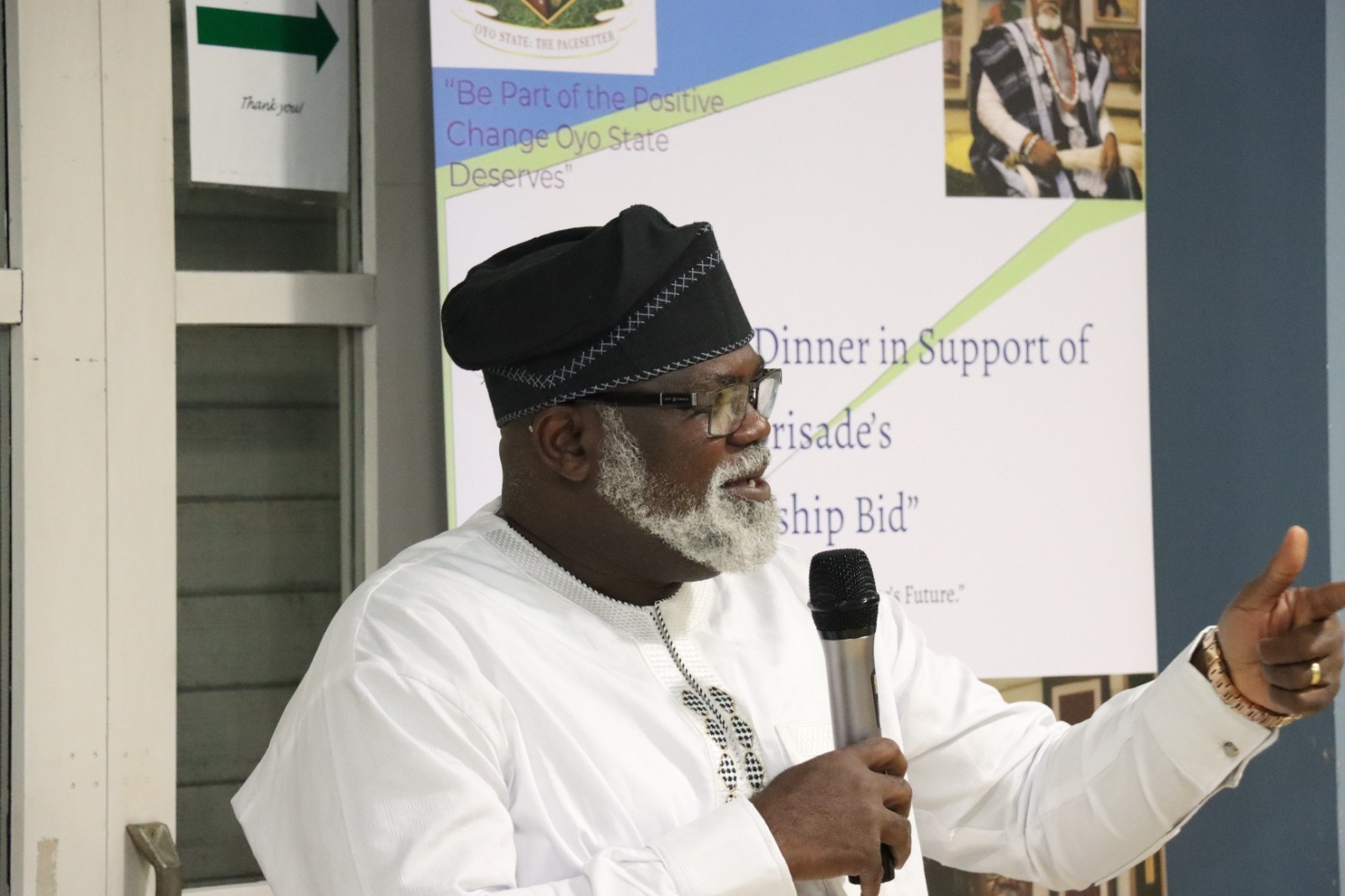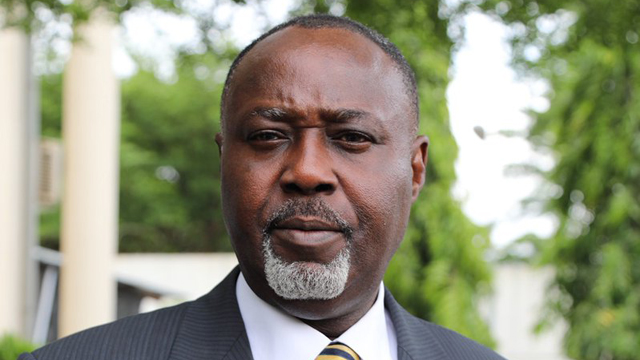Despite a long list of resolutions and receiving over N1.2 trillion in federal allocations in two years, the North-East region is neither building new infrastructure nor addressing endemic poverty in its domain. Beyond the ‘forum’ smokescreen, the undercurrent is the lack of requisite cooperation among the chief executives, RAUF OYEWOLE reports.
It has become increasingly evident, according to the 2025 data released by the National Bureau of Statistics (NBS), that poverty and poor infrastructure are more prevalent in Nigeria’s northern geopolitical zones, particularly the North-East and North-West.
For instance, the report reveals that child poverty, as measured by the Multidimensional Poverty Index (MPI), is alarmingly high in the North-East and North-West, with 90 per cent of children living in multidimensional poverty.
This grim reality sharply contrasts with the repeated resolutions made by the North-East governors under the North-East Governors’ Forum (NEGF) over the past six years, during which they have met 11 times; many of these resolutions remain unimplemented.
Aside from the North-East Trade Fair held in Bauchi in 2024, facilitated by the North-East Development Commission (NEDC), most of the region’s critical developmental resolutions have yet to materialise, especially those aimed at revamping the region’s economic prospects.
Among the key unfulfilled commitments is the proposed regional power generation project, which aimed to generate 300MW (50MW per state). Two years after its announcement, none of the six states has made any budgetary provision for the project.
Another significant abandoned initiative is the harmonisation of educational policies to tackle the out-of-school children’s crisis. According to UNICEF’s 2024 report, the North-East accounts for 5.06 million of Nigeria’s 18 million out-of-school children, representing a staggering 66 per cent of the national total.
Although the governors revisited the issue during their May 1, 2025, meeting in Damaturu, reiterating concern over the growing number of out-of-school children, they merely resolved to support the expansion of the Nigerian Law School in Yola and collaborate with the National Commission for Almajiri and Out-of-School Children Education (NCAOOSCE). They also pledged to provide office space for the Commission and promote vocational training across their respective states.
As far back as November 2020, during a full-attendance meeting in Yola, the governors had lamented the region’s deep-rooted economic, educational, and security challenges. They pledged a firm commitment to regional integration, promising to pursue shared goals such as enhanced security cooperation, promotion of social development initiatives, and advancement of economic integration.
However, despite these lofty declarations, the promises remain largely unfulfilled.
To date, citizens across the North-East continue to wait for visible, measurable actions from the North-East Governors’ Forum, actions that could translate words into real development across the region.
The renewed insecurity in the region has further exposed the six governors’ lip service to regional collaboration in tackling the menace. While they continue to pass the buck to the central government, the forum has failed to live up to its promise to replicate regional security outfits like the South-West’s Amotekun and the South-East’s Ebubeagu.
At their 10th meeting in Bauchi, the governors also pledged to tackle climate and agricultural challenges through firm measures: investing in irrigation, promoting drought-resistant crops, subsidising seeds and fertiliser, partnering with UNICEF for water-sanitation (WASH) programmes, and boosting the agricultural value chain.
However, farmers across Borno, Yobe, Bauchi, and Adamawa report widespread crop losses due to erratic rainfall and prolonged drought, with replanting and prayers becoming their main recourse. In Borno, the Alau Dam collapsed in September 2024, leading to devastating floods, displacement, and livestock losses, severely impeding local irrigation infrastructure.
Feelers obtained across the zone indicate that the governors appear more invested in merriment and colourful outings during their meetings than in implementing radical resolutions. Promises are worn thin, with little or no concrete action taken.
Meanwhile, in the last two years since the removal of fuel subsidy, the region has witnessed improved revenue flows intended to foster social progress and support regional collaboration efforts aimed at reducing hardship, unemployment, and poverty—factors experts say are fueling insecurity.
The forum’s failure to make a significant impact is glaring, despite a 40 per cent increase in Federal allocations to the region over the past two years. A total of about N1.2 trillion was shared among the six states during this period. Additionally, N188.7 billion was generated as Internally Generated Revenue (IGR) by the states.
Despite this, critical infrastructure like the Mambila Hydro-project, Upper River Basin, and Gashaka Gumti National Park have been in deplorable condition. The collapse of Alau Dam last year also exposed the lip service of the forum to developing the region. Though the dam, federally owned, the deterioration of these projects continues, with minimal state-level intervention.

Photo/FACEBOOK/professoryemiosinbajo
A house apart
A closer look reveals that the forum appears to have paid lip service to its resolutions. Ostensibly, five of the six governors, Babagana Zulum (Borno), Bala Mohammed (Bauchi), Inuwa Yahaya (Gombe), Ahmadu Fintiri (Adamawa), and Maimala Buni (Yobe), are exiting in 2027 after completing their second terms, while Kefas Agbu (Taraba) will be seeking re-election. Despite 11 meetings over six years, there’s little tangible achievement to show.
With less than two years to their exit, five governors seem more focused on succession plans and their future political ambitions than on delivering lasting solutions.
For political gain, some governors have made bloated political appointments. Kefas of Taraba has appointed over 1,761 political aides, while Bala Mohammed recently announced 168 new appointments. Gombe also added 16 aides. Meanwhile, employment initiatives that could help curb insecurity remain neglected.
Sadly, the spirit of collaboration appears to have collapsed. For instance, the proposed joint security outfit was never implemented, with each state choosing to create its own security arrangement.

However, poor policy implementation and weak inter-state collaboration continue to negatively impact the region’s road infrastructure.
Agriculture, the region’s economic backbone, has also been severely undermined by persistent insecurity, preventing many farmers from engaging in mass production.
A policy expert and Founder and Executive Director of the Systems Strategy and Policy Lab, Dr Murtala Mohammed Adogi, commenting on the level of implementation of some discarded policies, said: “In the context of destructive governance and result delivery, it is very important, by now, the entire North-East should have its own strategic plan for security.

“But it is time. I look at it holistically in three key areas: One, they need an Integrated North-East Security Strategy that would not only focus on Borno, Adamawa, and Yobe, but also account for the seasonal migration of people whenever there is a crisis in these states, often to Gombe and others. With this Integrated Security Strategy, they will have a direction for how to address the region’s security issues.
“Secondly, they should leverage the Lake Chad Intervention Fund, where many donor partners invest significant resources, and develop strategic interventions in areas such as youth empowerment, poverty alleviation among women and youth, and the design of result-oriented social investment interventions. The major driver of insecurity in Nigeria is essentially poverty.
“Lastly, coordination, who is coordinating what? For them to deliver results, resolve crises, and drive transformative growth in North-East Nigeria, a region blessed with agricultural potential and year-round dry season farming, they need robust coordination frameworks.
“The states can engage consulting firms in partnership with donor agencies and NGOs to provide a comprehensive coordination structure. For instance, the North-East Development Commission can develop a framework to hold quarterly and monthly performance review meetings.”
Giving perspective on the governors’ effort to form the North-East Education Council about four years ago, where a former Commissioner of Education in Bauchi State, Dr Aliyu Tilde, was appointed to coordinate the council, but the plan never saw the light of day—Adogi noted that the states need to re-coordinate their strategy to provide education to millions of out-of-school children.
According to him, “The governors could have delegated this task to their chiefs of staff or SSGs to coordinate, supervise, and monitor implementation of education policies. By doing so, they could have produced annual performance reports that allow them to compare outputs across states.”
Also, a public affairs analyst in the region, Dr Grema Kyari, asserted that the governors have a unique opportunity to leverage the Lake Chad Governors Forum—a platform that includes leaders from Chad, Niger, Cameroon, and Nigeria, with support from international organisations like the European Union—to address insecurity.
“These governors met for the fifth time at the University of Maiduguri, hosted by Yobe State. But I can say that it’s more of a tea conference. Resolutions are hardly executed.
“Talking about the North-East governors, they have been proposing this joint security outfit, but couldn’t implement it. Their coming together was supposed to give birth to an initiative and action plan to tackle insecurity, but nothing has been done.
“At our level, we have been urging them to form what we call a Community Response Network (CRN) in each local government area. This would strengthen early warning mechanisms. UN Resolution 1325 talks about inclusivity; a victim of insurgency is supposed to be at the forefront of the fight against insurgency.
“That was the approach used to flush Boko Haram members out of Maiduguri. Youths took it upon themselves—using sticks—to chase the terrorists before they later settled inside the Sambisa Forest.”
Kyari criticised the governors for neglecting the worsening insecurity in the region, saying they often realise their failure only when their tenures are about to end.
He pointed out that despite more than six years of “wining and dining together,” a larger segment of the population continues to writh in poverty and face premature death at the hands of insurgents, while the region’s economic status keeps declining.






